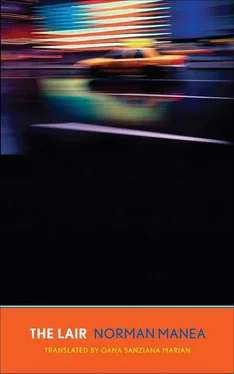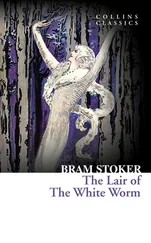“After that incident he never again participated in another departmental meeting, Avakian told me. At lunchtime, in the dining hall, if you looked for a table with just two chairs and put your briefcase and coat on one of them, it was a sign you wanted to be alone. And you would succeed. The comments weren’t very kind. Solitude is suspect in America. It’s considered arrogance. But President Avakian was sorry to see you go.”
Izy retold the story, waiting for his wisdom and magnanimity.
“Yes, he’s missed. Students took to him, nicknamed him ‘Pnin,’ Nabokov’s hero in the novel by the same title. When he transferred, I told him I’d try to keep him at our little college, even if he weren’t the erudite that he is. Simply so that students could benefit from his decency and candor, as a point of reference. When we said farewell, I said to him, ‘Timofei Pavlich, I would have tried to keep you here at any cost and under any circumstances. I don’t know that I would have been able to put up with Nabokov, but you, Timofei Pavlich, yes, for sure.’ He laughed, he knew about the nickname, he liked being called Pnin.”
Doctor Koch had his own commentary to add.
“The nickname didn’t surprise me. Of course it was from a book! Green horses on the walls, our people in the Balkans say. Not just green horses, but green horses on the walls. Or in books. Chimeras. You found Saint Peter from a book as well. You should have learned to drive, to wander around this extraordinary country, to travel across the world. To charm actual people, which you could have done, to allow yourself to be enchanted, as you deserved to be. I never forgot your ideas about my people. The chosen people, the people of the book. The Book, of course! Even though you knew no one other than the fat accordionist in the class. I mean, me. No scholar, as you well know. And you knew Jesus and Peter and Judas and Paul and other Christians like them from books, as well. The Sacred Country is the Country of Books, isn’t that right? You asked me if I’d heard about ‘the man without qualities.’ If I’d heard, not if I’d read about him! As if we were talking about a neighbor. You knew I’m not a big reader. You told me, and I will never forget this, ‘Your only aristocracy is intellectual, you never got to sit still in one place, to build a social aristocracy.’ The book is the only real aristocracy. Produced through misfortune. I was listening with my mouth gaping, same as my eyes and ears. The man without qualities? Now what was that? The man without balls? You laughed, and I hope you’ll laugh now, too. But time has passed and keeps on passing. Even for someone hidden in books.”
That was Dr. Koch! Now time was passing differently, a different pace, measured differently. One’s body can’t be the same forever, so then, everything passes, the mind, pride, frustrations. Even uncertainty changes. Laconic thinking … nothing from the great words is what it used to be.
“Has anything remained unchanged,” the phantom of the evening asked.
“The woman inside of me,” murmured Gora. “Invincible, because she is absent.”
Thick, black hair in a thick, long plait down her back. Large, smoldering eyes. Deep, intense, infantile melancholy. Matte, white forehead. Arched, Oriental brows. Aquiline nose, drawn with a thin brush. Pronounced lips, vibrating slightly. A young throat. Blue.
Jealousy begins in imagination, but also in memory. There, the lost body holds the lost soul. There, in memory: naked, on her back, her long legs raised to the ceiling or crouched, her back turned. She received the man with a whimper. There, Professor, you can hear the whimpers of pleasure, you can see the one who was with her and is no longer. And you see the one who replaced him. The stiletto bleeds the memory. The pain of the moment advances slowly, slowly.
Love is just moaning, what books call love. The whimpers of the infantilized soul. Peter above the kneeling woman, who whimpers gently, like other times. Pale breasts, the curve of her thighs, the seashell of her sex. Long arms, clutching Gora passionately, clutching Ga  par passionately. The abrupt movement of the head. Her black mane thrown on her back.
par passionately. The abrupt movement of the head. Her black mane thrown on her back.
Old Gora was writhing again. Again abandoned. Ulysses cast away, not toward his home, but away from any home, among wanderers who’d lost the chains that had once tied them to the mast. They dreamed, as he did, of the imposture of survival, liberation.
Old Professor Gora felt old. The couple Lu and Peter sent him back to an irretrievable and poisoned time.
The exile before the exile, then wandering, the hope that Lu might reappear. Then, routine, nonstop work, in the country that works nonstop, to forget itself. Long days and short nights and long years and speed always fueled by the consumption of time. The Crusoe calendar: twenty years in the new territory. Dizziness, enchantment, regeneration, and, once again, estrangement. A hospitable, dynamic country, and a screen that separates. The stranger has advantages in the country of exiles, but he wouldn’t dare compose the obituary of a native of this mixture of races and languages and beliefs that make up the Kingdom of the Unknown.
On his table he kept open the massive album A Day in the Life of America, the wilderness where he looked for Tara and Deste and Peter.
Gora slowly closes the book. He closes his eyes. He’s tired, and it isn’t the first time. He lowers himself, exhausted, into the armchair. One minute, five, then five hours.
He opens his eyes and discovers the white gloves on the table. “The most beautiful hands in the world,” Professor Gora hears. The index, the middle finger, the ring finger with the golden band, the little finger and the thumb, which wasn’t very thick at all, but timid, sleepy. The pink tipped fingernails, with white rims. Five troubled little beings, haptic magic. The professor believed in nothing but books, and it was from books that he learned that the ends of the fingers have the densest areas of nerves in the body, the Latin name manus — manus, in the corrupt Latin of his country, ties hands to gloves.* He’d have liked to write a poem to those gloves, but he wasn’t a poet.
During a suffocating summer, he’d gone to an exposition in London, called The Hands. He’d wandered through the room for a few hours, back and forth, stone still in front of each image then returning, again and again, to the worn hands of the Indian, the childlike hands of the midget — clown, the ivory articulations of the geisha and again in front of the fist of the boxer and the small, pale fingers of the pianist caressing the keys, then again the transfigured courtesan, touching her sex, the soldier with the finger on the trigger, the potato pickers holding their lucky bounty, the cook happily clutching to his chest an immense grayish cabbage resembling the brains of a Neanderthal, the perforated glove of the cyclist and the greenish glove of the surgeon and the silken gloves of the actress who dominates the memory of century.
It was cool in the great, deserted gallery, no one else but a young Irish woman, with red hair and the waistline of a ballerina, who was contemplating her own freckled fingers while sitting in a chair made of coffee — colored leather. He had watched her, as well, from afar, hoping she’d raise her gaze, but no, the girl couldn’t separate her gaze from the image she was scrutinizing.
Outside there were crowds and haze, but before long he found the store he’d heard about. Small, elegant, expensive. He knew the number. He bought the first two pairs of gloves for his collection.
Haptic magic couldn’t describe that sensation, he knew only that he was setting his blood in motion instantly. The hands, a part of the brain, controlled by the cerebral cortex in greater measure than any other part of the body! That was what his friends said, his books, that is. He’d researched like a madman, he’d scoured the lines in his own hands, like a pilgrim. The unmistakable fingerprint. The line of the heart, the line of a wasted life. The length and form of the palm and the fingers recalled the coded character of the woman who disappeared from his life. He would unclench her long and delicate fingers slowly, blinded by the rounded, mother — of — pearl fingernails tipped with a white line.
Читать дальше

 par passionately. The abrupt movement of the head. Her black mane thrown on her back.
par passionately. The abrupt movement of the head. Her black mane thrown on her back.










